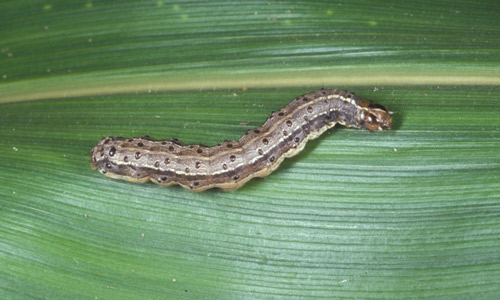Why do young plant biologists need to think locally?
“Why do you need to improve the yield of the crops beyond this point? We are producing enough food to feed the world and the existing threats to food security are merely due to the lapses in management and distribution of the produced food” – a professor who is a well-known figure in the field of plant developmental biology once said to me during a journal club discussion. He said he was fed up seeing every other paper he came across claiming their results would contribute towards yield enhancement and food security. “Then what about the projections about our massive future requirements?” I asked.
“Aah! We just lament a lot about the future. I don’t think we really care. We are just constructing a reason to justify what we are fond of doing. It is unfortunate that we feel compelled to fabricate a significance to our work way out of its premise and scope”.
Maybe the professor is complacent with his curiosity-driven fundamental research and arrogantly ignorant about the problems mankind will have to address in the future, I thought. While doing research in fundamental plant biology using Arabidopsis model system, my philosophical refuge has been the faith that my efforts will contribute to the larger cause of global food security some day.
While wondering if I would ever have anything new to add to the existing efforts, the Prime Minister of India came in TV to proudly state that India has managed to produce an all-time high 308 million tonnes of food grains in 2020-21, which is nearly 4% higher than the previous year. Everything appeared to be right on track!
But food security, like my professor, said, is also an extremely complex problem involving multiple factors in addition to the total food production statistics. It seemed impossible to fit my minuscule work in the large scheme of things. I kept asking myself what could be a more realistic focal point for the young plant biologists to concentrate on during this journey apart from “food security”.
Bringing farmers to the focal point
Like everyone else, I knew that the two primary stakeholders in agricultural production are farmers and consumers. Both are equally important and balance each others’ existence. However, the entire concept of food security has been traditionally constructed around the wellbeing of consumers, whereas the requirements it put forth are mostly concentrated on the output from the farmers. But for farmers, farming is not just about fulfilling the duty towards global food security; instead, more importantly, is their livelihood. The income generated from the farm can often decide their life and death. This is especially the case in several under-developed and developing countries in South
Asia, Africa, and South America where a huge proportion of the population is involved in agriculture for their livelihood, most of them doing farming in very marginal landholdings.
While the global and country-wise food production statistics have been showing a consistently upward trend, we don’t see any substantial change in the distress of small-scale farmers in these countries. Their lives continue to run on endless cycles of financial loans. Farmers committing suicide following a crop failure remains common news in many such countries.
Understanding farmers’ problems in the field at a fundamental level and devising scientific solutions to address them is imperative in resolving the bigger questions of food security. But are we really able to bridge the growing gap between our understanding of the grass-root realities and the problems that we are expected to address? Early career plant biologists often lag behind in exposure and training to think from the farmers’ point of view of agricultural problems. We know the “hot topics” in plant research through “annual reviews”, “trends”, and “current opinions”, but we hardly know what bothers the farmer in the nearby field and if we, as plant biologists, can do anything about it.
Local should become normal.
After submitting my Ph.D. thesis, I worked for a brief period with the state government of Kerala in India as an agricultural extension officer. My duties included extending technical support to the farmers, and implementing agricultural development schemes of the government in a rural area.
One day, a group of farmers approached my office with a problem. Their crops had unprecedentedly started showing growth issues. When we tested the soil, we found that the pH of the soil has gone down dramatically, probably as a consequence of a flood that occurred in the recent past. We temporarily solved the problem by reclaiming the pH of the soil by amending it with chemical supplements.
After this, I talked to the farmers about how the biology of plants gets adversely affected under low pH and how plants are enabled to cope up with the acidic pH to some extent by using their internal mechanisms. The farmers were used to receiving technical solutions from both state authorities and agricultural scientists, but they were generally not used to hearing about the biological processes happening inside their crops. They liked it and often showed keen interest in asking such questions thereafter.
A vast majority of soils in the Kerala state is acidic and the state had started seeing recurrent floods in recent times. The only agricultural university in the state had been trying to develop some varieties that can withstand these conditions through conventional breeding methods.
Surprisingly, no prominent research labs in this state with 35 million inhabitants were studying the fundamental molecular mechanisms that help plants respond to these adverse conditions. This is just one of many such scenarios I came across were problems that persist locally failed to grab the attention of plant biologists. Talking to people working in other areas of the country, I realized that this is not an isolated issue and I believe that this might be a common scenario worldwide. As biologists, we might not be interested in developing technical solutions to tackle such field-level problems. But the breeding efforts and agronomic strategies need to be complemented by a deeper molecular-level mechanistic understanding of the problem, and it is more likely to be done by the plant biologists who work in the region than from elsewhere in the world.
While framing the research questions, we plant biologists tend to ignore the geographic and edaphic factors, seasons, weather, demography, economic status, and politics of the region in which we work. A deeper fundamental understanding of local problems through basic research is important to facilitate problem-solving efforts at various levels.
Choice of models
While studying the classic models remains to be crucial, it is also important to expand our repertoire of model plants. This paves to a democratic way for accommodating the problems across the world in our grand research portfolio. We should choose the study organisms wisely – they should be relevant to the agro-climatic conditions of the region and should fairly represent the diversity of the flora of the region. With modern genomics revolutionizing our scope and prospects of understanding different plants, we can not only aim at globally relevant problems using locally relevant model organisms but also address highly localized problems, which might have more visible results.
But how to choose between small local problems that can have an impact on people around us and the “bigger” problems that can make an impact on the scientific field we work on? I don’t think I have an answer yet. Although there could be a possible balance or a reasonable trade-off, it is a difficult choice in front of any young scientist in their career-building phase.
Now going back to the initial problem: how do I tackle my existential crisis and convince myself about my significance as a young plant biologist in this world? I slowly realize that my professor might have been partially right. For many of us, there exists a logical disconnect between the science we do as plant biologists and the impression that we build on our own significance. Every problem in agriculture is not a “global food security problem”. They are better addressed when broken down into local problems faced by local people. The only way to place ourselves as facilitators of change is by building a primary connection with the problems faced by people around us.


